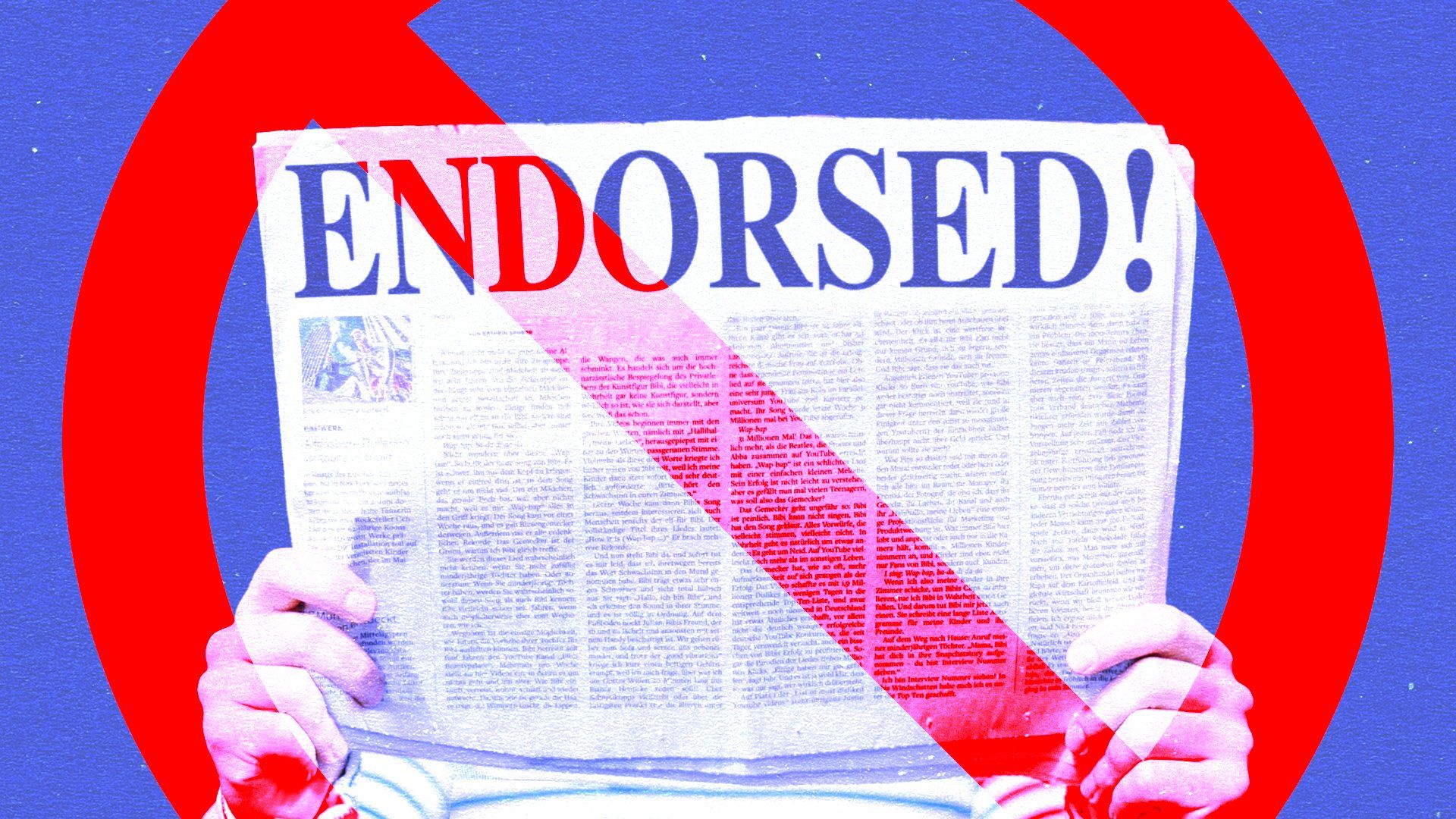Smart or spineless? Should newspapers endorse candidates, or does it undermine their objectivity?
When Washington Post owner Jeff Bezos announced last week that his paper would no longer publish political endorsements — as they have done for decades — the backlash was swift. 200,000 people canceled their subscriptions, according to NPR. Retired Post Executive Editor Marty Baron unleashed a furious volley on X. “This is cowardice, with democracy as its casualty,” he raged. “Disturbing spinelessness at an institution famed for courage.”
For Baron, missing editorial vertebrae is a virtual news pandemic. The Los Angeles Times also canceled endorsements. Gannett, which owns 200 papers including USA Today, banned presidential endorsements earlier in the year.
Was the Post’s move, as Baron suggested, a lame, last-minute attempt to appease Donald Trump (should he win) and curry political favor?
The timing sure looks bad. If Bezos wanted to change the Post’s policy, he should have done it much earlier. Yanking endorsements days before a close election is like giving yourself a political wedgie, an awkward, painful experience that seems totally inappropriate. It undermines the integrity of the decision and gives it the sour sniff of desperation, a weak obeisance to Trump’s anti-media threats. Showing fear of the powerful is a malignant condition for any news organization.
But while the timing looks weak, the merits of the argument are strong. Bezos is right to point to aGallup poll from October showing that trust in the media is at an all-time low, with only 31% saying they are confident the media reports the news fairly and accurately.
“For the third consecutive year, more US adults have no trust at all in the media (36%) than trust it a great deal or fair amount,” wrote Gallup. “Another 33% of Americans express ‘not very much’ confidence.” As a comparison, in the 1970s, trust in the media was closer to 70%. Even in the early 2000s, trust was still about 55%.
Bezos sees endorsements as one reason for this collapse. To him, endorsements are a dangerous vestige of a bygone era that undermines the trust in objective journalism. “What presidential endorsements actually do is create a perception of bias,” he wrote. “A perception of non-independence. Ending them is a principled decision, and it’s the right one.”
Gannett took a slightly more nuanced position than Bezos, banning national endorsements for president but letting its local papers endorse at the local level. “We believe America’s future is decided locally – one race at a time,” Gannett announced in a statement to CNN.
This may be a distinction without a difference, but nuance matters. Papers have long published editorials on various subjects, and readers look to those positions for some guidance. They should and will continue. Editorials are marked as such and function as separate sections for readers to discern. An election endorsement is different. It taints all reporters’ work with a political hue.
Outlets that openly skew to one political side — right or left — should be happy to continue to endorse and present their reasons. Why not? They are open about their partisanship and political bent, and they make money selling their papers to people who like that view.
But for any media organization fighting to maintain an objective, nonpartisan reputation, political endorsements alienate readers from one or another side, driving them to partisan outlets that may have no journalistic standards at all. Readers can make up their own minds on who to vote for without a paper picking sides.
At GZERO, we have never endorsed a political candidate. Our policy is to maintain objective, nonpartisan journalism and analysis, without becoming toothless bores whose neutrality masks an unwillingness to call out facts or press back against the tide of disinformation and bullshit. But who you vote for is up to you. Our job is to present the facts, the stories, and the policies clearly, put them in perspective, and make sure you have the tools to make an informed decision.
Speaking of election tools, we have a full toolbox for you here to get all the insights you need for the wild events surrounding this election, from our Bloc by Bloc series on America’s changing voting patterns and key factors that may sway the election, to a deep dive into the seven swing states that will determine the next president.
Also, please tune in to Ian Bremmer and Van Jones tomorrow on our new Substack channel (subscribe today) at 2:15 p.m. ET for a great chat about the drivers of the election so far.
We will also have election night coverage on our website and on Substack, where you can participate in the virtual watch party. And join us for our live X space at 11 a.m. ET on Nov. 6, even if there is no confirmed winner.
So while we don’t endorse endorsements, however you choose to vote, please join in the conversation. We keep it civil and fact-based, and we don’t think it is a crime to enjoy talking politics.
